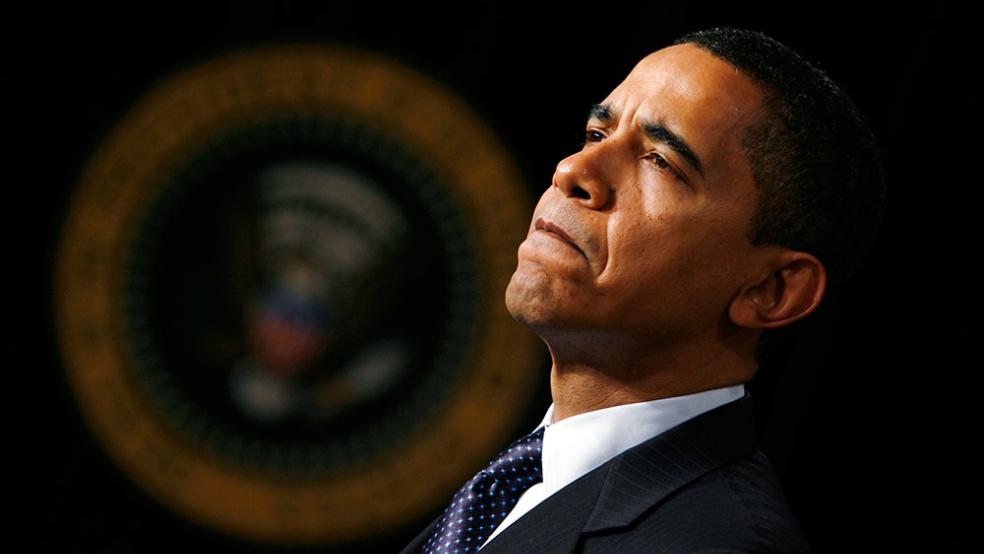President Obama laid out a new vision for his foreign policy, calling for American leadership in world affairs while continuing the fight against terrorism through partnerships with allies. Whether the president has enough time to change course before leaving office puts his foreign policy legacy at risk while raising questions about why this change comes so late in his second term.
Speaking to graduates at West Point today, the president seemed to aim his speech squarely at critics who charge that his foreign policy is directionless and that America has lost the high ground in global affairs. He said those who “suggest that America is in decline, or has seen its global leadership slip away – are either misreading history or engaged in partisan politics.”
Related: Obama Outlines $5 Billion Counter-Terror Initiative
“America must always lead on the world stage,” Obama said. “But U.S. military action cannot be the only – or even primary – component of our leadership in every instance. Just because we have the best hammer does not mean that every problem is a nail.”
A day after his statements that the last American troops would leave Afghanistan in 2016, Obama announced a new $5 billion partnership to help allies in the Middle East and Africa fight terrorist groups connected to al Qaeda, like al Shabaab in Somalia and other extremist groups like Boko Haram in Nigeria.
“Today’s principal threat no longer comes from a centralized Al Qaeda leadership,” Obama said. “Instead, it comes from decentralized Al Qaeda affiliates and extremists, many with agendas focused in the countries where they operate.”
The policies laid out in the speech are reminiscent of Theodore Roosevelt’s “Speak Softly and Carry a Big Stick” message, which preached strong leadership with the subtle threat of military force. But with little more than a year and a half left in Obama’s term, altering the course of his foreign policy ship will be a heavy lift.
Related: Why Boko Haram Might Be Impossible to Stop
It is still unclear how a counterterrorism partnership would work. The Boko Haram situation in Nigeria illustrates the problems with this kind of model. The United States cannot provide direct assistance to the Nigerian military because of the human rights abuses it has allegedly committed. So would U.S. money go toward drone surveillance? Would it be used to help collect intelligence? These questions remain unanswered.
In addition, many of the terrorist groups that would be targeted in the partnership are well armed and well trained. In Somalia, a union of African troops has been unable to dislodge the leadership of al Shabaab, a group that has killed thousands in Somalia and Kenya. The group is so capable that it turned back SEAL Team 6, the operators that killed Osama bin Laden, in October of last year.
It’s also unclear whether the kind of reinvention Obama outlined can be done without a wholesale change in leadership at the State Department. Secretary of State John Kerry has faced criticism for his handling of the Israeli-Palestinian peace talks, the Syrian civil war, the Ukraine crisis and the Iranian nuclear negotiations. Yet Obama has given no indication that he plans to change leadership in Foggy Bottom.
Since taking office, Obama has preached patience when it comes to foreign policy. He insists that history will show that America exerted its influence in subtle yet important ways while he was in office. His speech today doubled down on this belief. But with just less than two years left in his presidency, there’s little time to prove that he was right all along.
Top Reads from The Fiscal Times:





